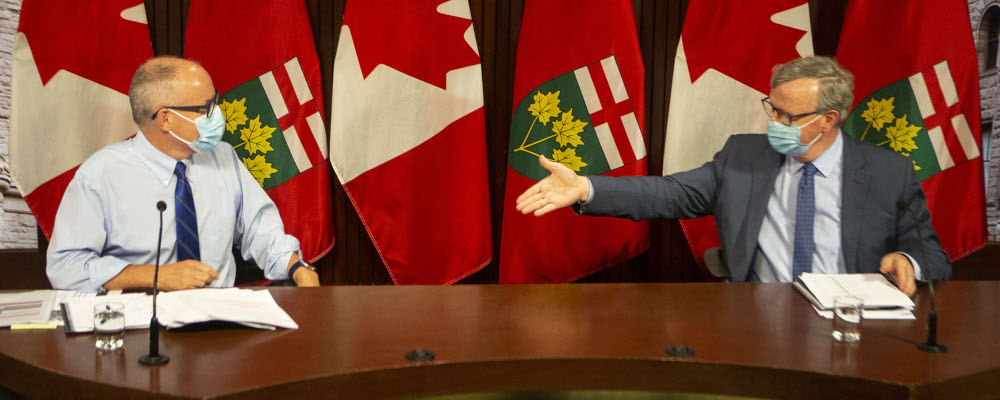There are many reasons to read people you disagree with, but the most obvious is that sometimes you find yourself agreeing with them. That in itself isn’t surprising: rarely are two people so irreconcilably inimical that they can’t agree on something. More interesting is when you see your own beliefs through someone else’s eyes and find that you not only agree with them, but disagree with yourself.
As we retreat further into our algorithmically padded echo chambers, the opportunities for such epiphanies are becoming rarer, and the experience more surprising and possibly sweeter for it. It takes conscious effort to resist social media’s attempts to gratify us with agreeable outrage and to seek out unexpected stimuli to reflection. That is one reason why I regularly read Marxists and socialists.
I follow them on Twitter (@jacobin; @aaronbastani), I subscribe to their Substacks (Justin Smith), and I even occasionally dip into Marx himself and his modern disciples from Guy Debord, who saw our modern “society of the spectacle” decades before Instagram and Tik Tok, to Paul Sweezy, whose theory of secular stagnation looks increasingly plausible (but no longer Slavoj Žižek, who is amusingly, provocatively, and predictably wrong about everything.)
This isn’t a matter of reading to understand your opponent, so that when you meet him in a contest of ideas you can outmanoeuvre him—Jagmeet Singh, you magnificent bastard, I read your book! (Actually, that’s a bad example: Singh is as much the heir of Frank Scott as Kevin O’Leary is of George Grant.) No, the more rewarding reason is that smart people who disagree with you often say interesting things, even if you don’t end up agreeing with them and rethinking your own position.
Justin Smith, for example, writes better than most conservatives about the reasons to read and study the humanities, how technology changes our world and us with it, and the plight of the modern university. He may start from a very different set of underlying assumptions than mine, but he’s immensely learned and intellectually prickly enough always to be interesting and occasionally to wound. He is also just a pleasure to read.
So much for the obvious and rewarding reasons. The more important reason to read Marxists—and the harder one for many conservatives to accept—is that in the 20th century’s battle of ideas, Marx won.
The Italian philosopher Augusto del Noce announced Marx’s victory in his last essay, written a week before he died in 1989. While most Western conservatives were gazing over the ruins of the Berlin wall at the tattered economies of the Eastern Bloc and concluding that Marxism had failed, almost alone among them del Noce looked back over his shoulder and saw what they did not: the countries behind them had quietly become Marxist.
Sure, Marxist economics failed in the Soviet Union. It was bound to fail, because its economic and historical pseudo-scientific assumptions were wrong: profit is not proof of exploitation, and collectivization on any scale larger than a kibbutz runs so counter to human nature that it is doomed first to corrupt and then to collapse. Pope Leo XIII had diagnosed the problem a century earlier, while Das Kapital was being translated and read across Europe for the first time. In his encyclical Rerum novarum, he wrote that the revolutionary socialists who would abolish all private property were “emphatically unjust” and he predicted that they would “distort the functions of the State, and create utter confusion in the community.” One hundred million corpses would prove the pontiff terrifyingly right.
By the time the Cold War ended, Marxism had done its damage on both sides of the Iron Curtain.
But Marxism was never just an economic program. In Marxist thought, the worker’s alienation from the products of his labour under capitalism has its parallel in man’s alienation from himself under the pacifying superstition of religion and the false consciousness encouraged by bourgeois social conventions. Inspired by the atheistic philosopher of religion, Ludwig Feuerbach, Marx wrote that just as man must be liberated from capitalism if he is to re-establish his freedom of labour, he will not be truly free until he has also liberated himself from religion and bourgeois ideas like marriage and family.
Marxist economics may have failed to win over the West, but the calls to shed religious belief and dismantle social custom found at least as receptive an audience here as they did in Eastern Europe, maybe even more so. Western intellectuals may have balked at giving up the perks of capitalism — summers on Martha’s Vineyard don’t pay for themselves — but they set about enthusiastically implementing the other parts of the Marxist project in every institution from the national government down to the family. By the time the Cold War ended, Marxism had done its damage on both sides of the Iron Curtain: the old communist countries got capitalism, but now unconstrained by the safeguards of religious sanction and traditional bourgeois mores. And so did we.
In retrospect, we can pinpoint the moment that the West lost the fight against Marxism. When the Soviet Union’s proselytizing ambition became clear in the years following the Second World War, Western leaders at first talked about an existential clash between Christian civilization and communism. But, subtly, over the succeeding decades, the terms of the debate changed. No longer did victory depend on the truth of Christian humanism and the error of atheistic Marxism; instead, our leaders assured us, we would defeat communism with our higher levels of economic productivity and our more uninhibited social liberties.
Ironically, it was the Soviet Union that continued to fight, at least for a while, according to the old terms. The Russians deployed classical music, art, and ballet as diplomatic tools long after we had switched to exalting popular music, blue jeans, and sexual freedom as evidence of our superiority. By then it should have been clear that the war of ideas was over. Once the battle moved from the moral high ground to the market place and the West stopped defending eternal truth and started celebrating radical personal liberation, the war was over: we had embraced the language and the epistemological framing of Marxism.
Many conservatives surrendered to the Marxists along with the liberals without even knowing it. They bought into the idea that a modern society required a rationalist politics that rejected the place of the sacred in society and the role of morality in policy; they ceased to speak of right and wrong, or truth and error, and adopted a utilitarian vocabulary of profit and pleasure maximization. Very quickly these conservatives found themselves unable to muster arguments for traditional customs like Sunday shopping laws, or against hard-core pornography and drug legalization: worse, they no longer wanted to.
When these conservatives liberated themselves from religion and tradition, they rejected the Marxist alternative of faith in the state, which left them with a single-minded faith in free markets. Our corporate leaders couldn’t have been happier. They saw the potential profits of global capitalism untethered from local and national loyalty and the old moral hang-ups about debt and usury. Like the Marxists, they also had no time for inherited institutions and traditional ways of ordering our lives, at least when they got in the way of making money.
This is not to diminish the importance of free markets. Conservatives should, of course, defend markets where they work in productive and healthy ways. Farmers markets, for example, and roadside fruit and vegetable stands, which involve almost entirely unregulated transactions between producers and consumers, are about as close to a pure market you will find in a developed country (so much so, that it’s strange that they are seen as part of the Left’s cultural sphere rather than the Right’s).
Markets are great for setting prices and pricing labour, but only in a system that values something higher than profits.
But there is a long way between a farmer’s market and the crony capitalism, oligarchic capitalism, cartel capitalism, and bureaucratic capitalism that dominate so much of our economy, and conservatives should not be baited into defending these corruptions of the market by critics of all market economics. Nor, in fighting to unleash the potential of the free market to create prosperity, should they make the mistake of thinking markets need no regulation at all.
The morality of the market, as Adam Smith rightly extolled it, allows us to rely for our basic needs on the self-interest of others. That is a good thing, but it is not a substitute for morality in general, and it certainly cannot be the sum total of our morality. Markets are great for setting prices and pricing labour, but only in a system that values something higher than profits. A free market operating in a society that protects its workers’ rights will send those workers’ jobs to somewhere that doesn’t, unless we enforce principles of loyalty and nationalism on the market participants.
Societies operating without moral oversight are incubators for monsters. Sometimes literally. In that final essay, Del Noce quoted his friend Marcello Veneziani’s belief that Western society had realized “the essence of Marxism” by accepting: radical atheism and materialism, internationalism and universal non-belonging, the primacy of praxis and the death of philosophy, the domination of production and the universal manipulation of nature, technological Faustianism and equality that realizes itself as homogenization.
It’s a mouthful, but when you read that a team of American and Chinese scientists has created a monkey-human hybrid, you can see what he means.
If conservatives want to undo the damage of Marxism on our culture, they need to recover a moral language that allows them to say that monkey-human hybrids are not simply a bad idea but wrong: malum in se. It doesn’t matter if the research on monkey-human hybrids can be explained by what the researchers hope to learn, there can be no room for libertarian or utilitarian arguments here. No amount of explanation of evil can add up to a justification of evil. A sentence that starts “monkey-human hybrids are wrong, but …” needs to be cut off there.
Conservatives are so used to arguing for the good that free markets bring that they are often uncomfortable talking about the evil that they can enable. They should get over it. Tech companies scooping up our personal data, from keywords in our “private” emails to tracking what we watch and listen to in our homes, are not just creepy but anti-human. If we are not prepared to defend our society against the libertarian argument that people are free to make such choices for themselves, then we will continue the devolution from a culture of mindless human consumers to one of mindless human products.
I suspect that dissatisfaction with our political system today, especially among young people, has more to do with this ongoing damage to our institutions by the removal of traditional restraints than with the intrinsic appeal of Marxist economics (few members of Generation Z would really trade our system for that of Bolivia or Zimbabwe). That makes advancing a conservative political vision much harder. Marxism’s almost complete obliteration of our old ways of thinking about the world mean it is difficult to explain the problem in terms people will hear, let alone understand.
To be heard, conservatives should offer solutions that do not just address voters as economic units but as individuals who are part of communities, with innate dignity and needs that cannot be captured by a balance sheet. Talking like this doesn’t mean becoming liberal or progressive — quite the opposite. Where conservatism departs most radically from Marxism and liberalism is in its insistence on being guided by human experience, not abstract theory, so its policies should be measured in terms of human flourishing, which is not coincident with economic growth (though under the right conditions the two may be complementary).
When conservatives forget this and start thinking of a successful education policy as one that will boost GDP, for example, or when they adopt the Left’s approach to child care policy in which the role of parents is to be economic inputs first, and to raise and care for children second, they fall into the Cold War trap of competing with the Left on their materialist and liberationist terms.
Economic growth and fiscal discipline will always be important goals of conservative policy, but they are the foundations of a policy program, not the finished product. If conservatives have forgotten this, they only need to start reading Marxists: to remind themselves of Marxism’s inevitable failures, yes, but also of its unfortunate success.
Recommended for You

Ginny Roth: J.D. Vance, Pierre Poilievre, and how they slice their economic pie

David Polansky: As President Biden leaves the race, will the Democratic Party hodgepodge hold?

RCMP spending to protect MPs may have risen 112% since 2018, as Canadian politicians face greater rise in threats

Trevor Tombe: Canadians are paying billions in hidden taxes on new homes









